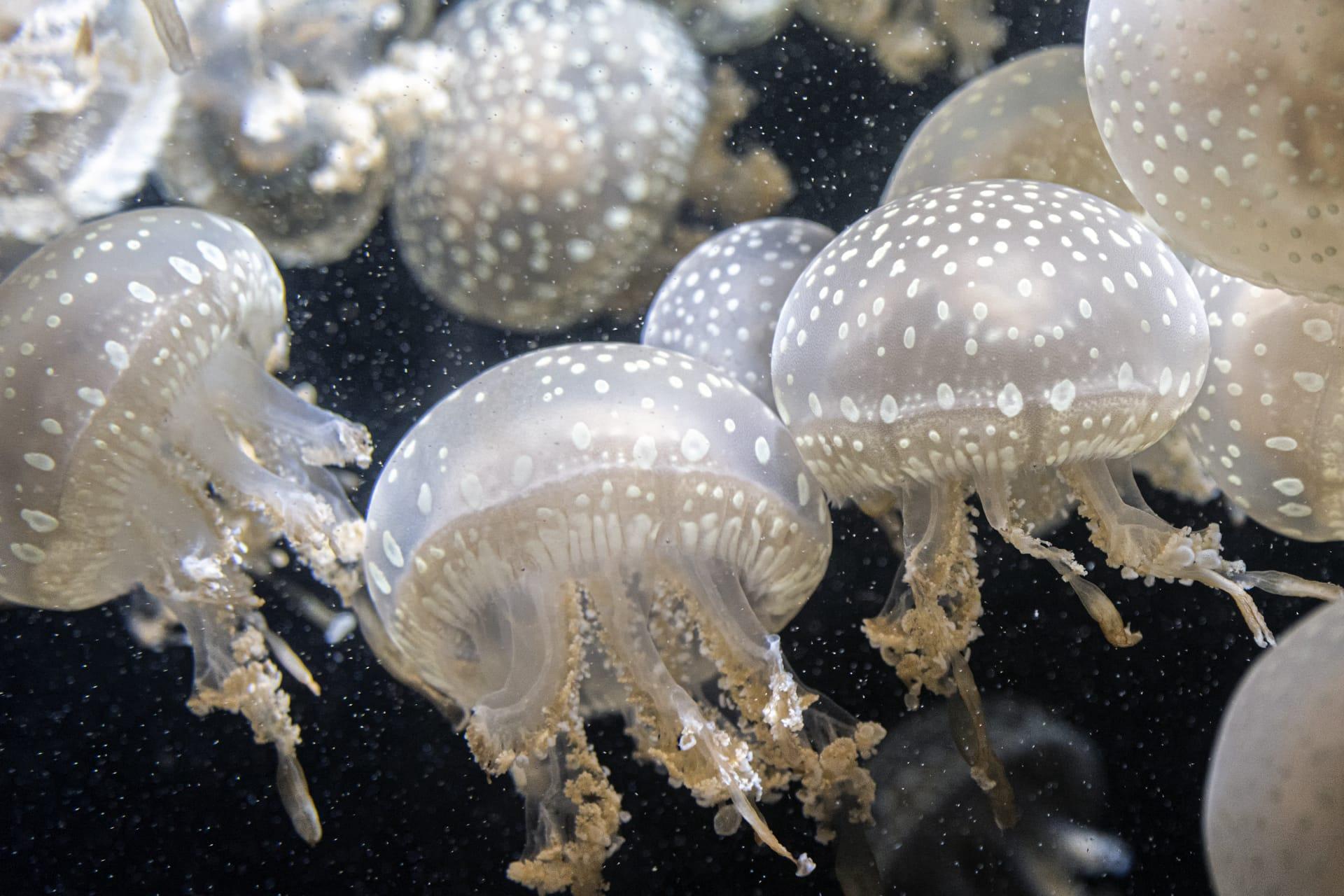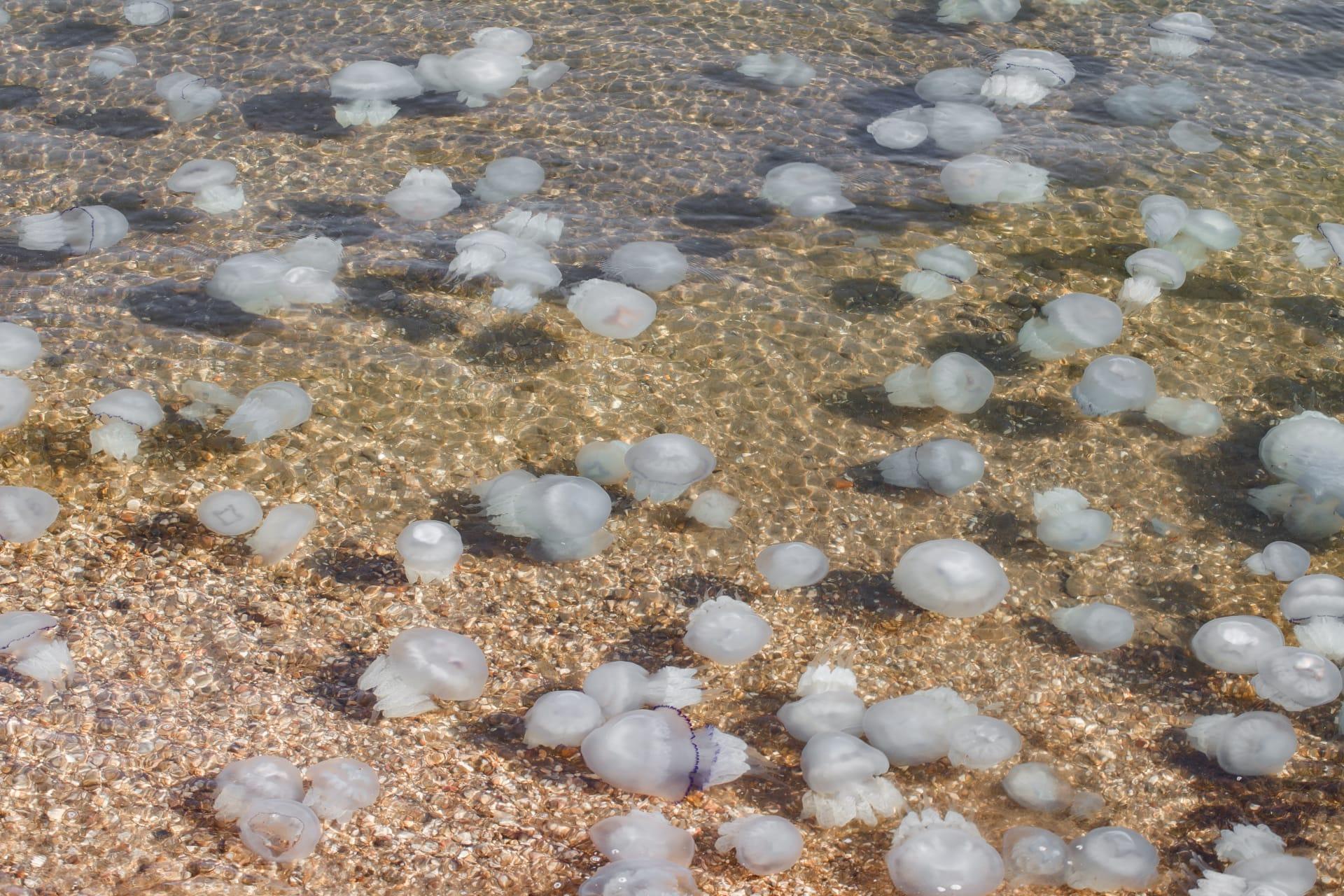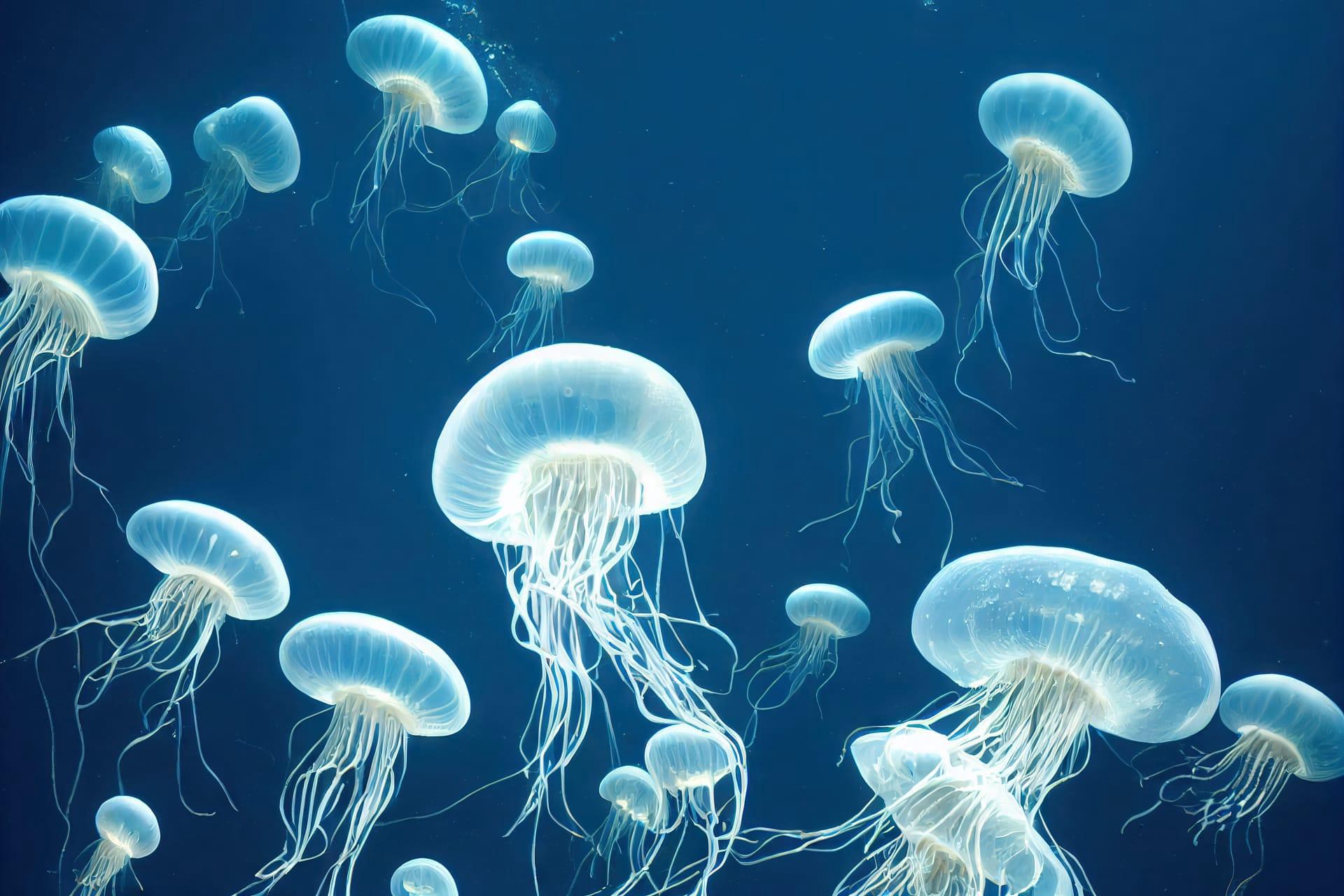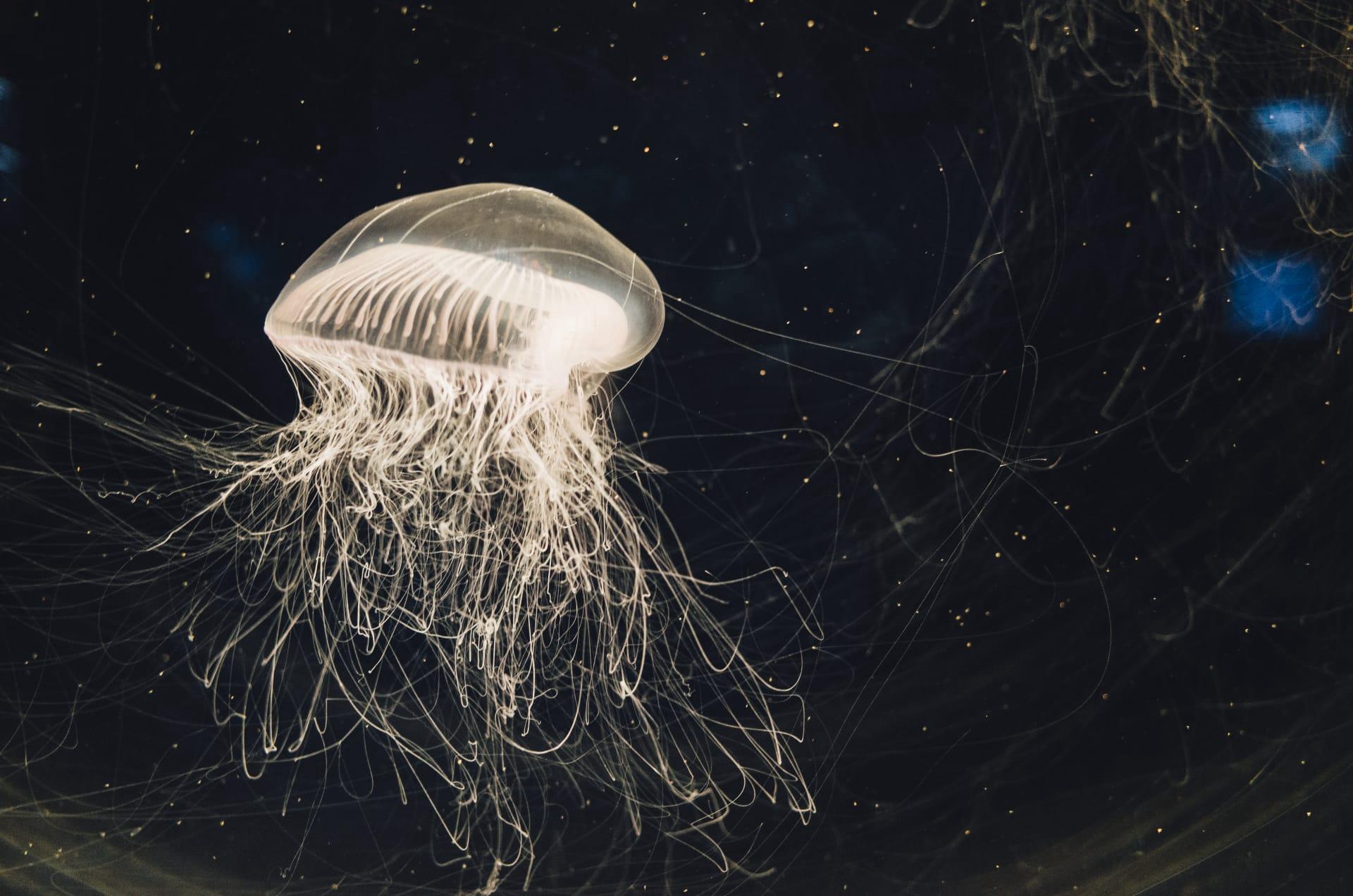Jellyfish Trivia
- Home /
- Trivia Question /
- Animal /
- Jellyfish Trivia
1
Question: How long can jellyfish live?
Answer: Surprisingly, the lifespan of jellyfish varies significantly among species. Some live only a few hours, while others, like the Turritopsis dohrnii, known as the "immortal jellyfish," can potentially live forever. It can revert to its juvenile form after reaching adulthood, a process called transdifferentiation.
Question: Do jellyfish have brains or hearts?
Answer: Jellyfish do not have brains or hearts. They have a simple nervous system, called a "nerve net," which allows them to perceive changes in their environment and respond to them. They also have a basic circulatory system but no heart. Oxygen is absorbed through their thin skin.

2
Question: Can all jellyfish sting?
Answer: While most jellyfish have stinging cells, not all species can harm humans. The stinging cells, called cnidocytes, contain nematocysts which can inject venom into prey or predators. However, some species have very weak venom that doesn't affect humans.
Question: Are jellyfish immortal?
Answer: The notion that all jellyfish are immortal is a misconception. Only one species, the Turritopsis dohrnii, has the ability to cycle from a mature adult stage to an immature polyp stage and potentially back again, giving it a form of biological immortality. Other jellyfish species have a definite lifespan.

3
Question: How do jellyfish eat?
Answer: Jellyfish use their tentacles to capture prey, which usually consists of plankton, small fish, and other jellyfish. The tentacles deliver the prey to the mouth, located on the underside of the bell. They digest food in a simple, sac-like stomach.
Question: Can jellyfish survive out of water?
Answer: Jellyfish are not able to survive out of water for long. Their bodies are made up of over 90% water and they lack the structural support to maintain their shape outside of water. Without the buoyancy of water, they collapse and can quickly dehydrate.

4
Question: Do jellyfish have any natural predators?
Answer: Yes, jellyfish do have natural predators despite their stinging cells. Sea turtles, some species of fish like the sunfish, and even other jellyfish species are known to feed on jellyfish. Birds and bigger marine mammals also occasionally prey on them.
Question: How do jellyfish reproduce?
Answer: Jellyfish have a unique life cycle with both sexual and asexual phases. They release eggs and sperm into the water, which, after fertilization, develop into larval forms called planulae. These planulae settle on a surface and develop into polyps, which can then asexually produce more jellyfish.

5
Question: How do jellyfish move?
Answer: Jellyfish move by a process called jet propulsion. They contract and relax their bell-shaped bodies, pushing water out to propel themselves forward. However, their movement is largely passive; they depend on ocean currents for long-distance travel.
Question: What happens if a jellyfish dries out?
Answer: If a jellyfish dries out, it cannot survive. Dehydration leads to a loss of body structure and function. Jellyfish are made mostly of water, and without it, their bodies disintegrate. They need a moist environment to maintain their physical form and biological functions.